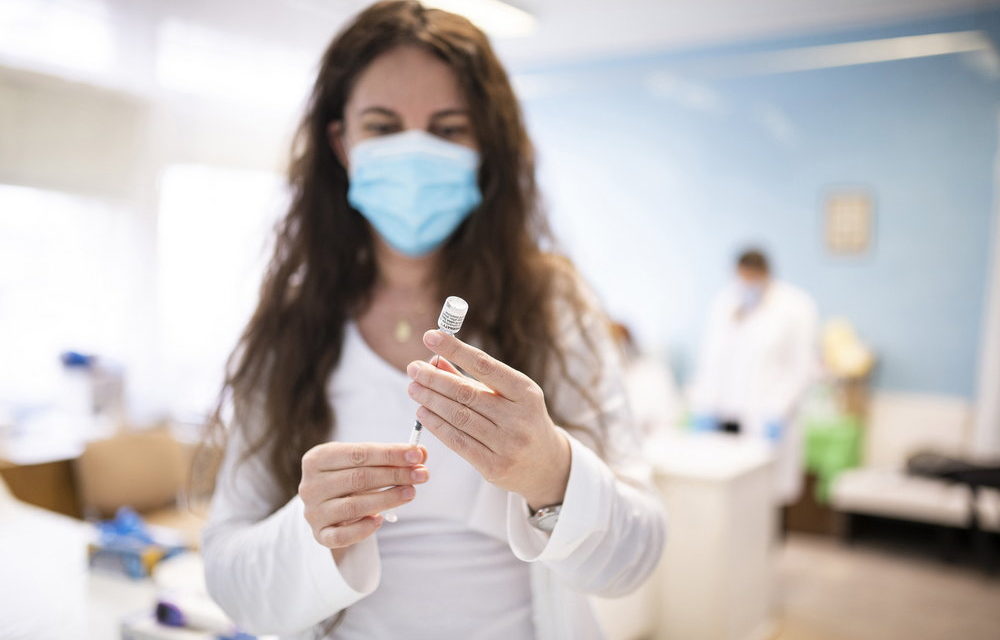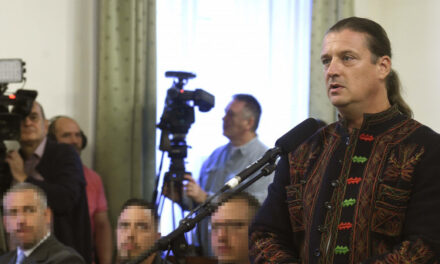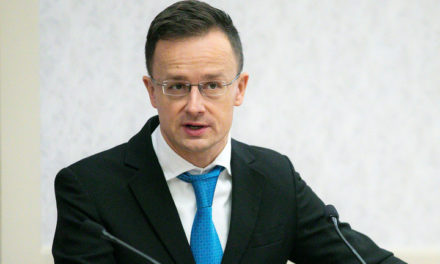One of the most dangerous aspects of the so-called post-Covid syndrome is the complaints affecting the cardiovascular system, for which there are currently no special treatments, it was said in Kossuth Rádió's Sunday newspaper program.
"We need to talk about two things, firstly, the acute stage of the disease - it became clear relatively early on that some people are dominated by heart complaints and have demonstrable damage to the heart muscle. This has been known almost since the disease appeared," said Zoltán Csanádi, professor of cardiology and president of the Hungarian Association of Cardiologists.
"The other is a so-called late phase of the disease, which is called post-Covid or long-Covid." The difference between them is that post-Covid means that after three months the patient still has complaints that cannot be attributed to anything other than the completed Covid-19 virus infection. And long-Covid means that the patient's complaints were continuous , added the cardiology professor.
"We see that the so-called post-Covid syndrome also occurred in patients who did not have heart disease before - even in patients who did not have serious symptoms during the acute phase of the infection, or signs of heart involvement - - stressed Csanádi Zoltán.
The most common post-Covid symptom is difficulty breathing. In addition, there may be chest pressure, headache, joint complaints, loss of appetite, and memory impairment, so it is a very complex set of symptoms.
Regarding the heart attack, the cardiologist said that "it is more typical in the acute department, as there is an inflammatory reaction in the body that also affects the coronary arteries".
"It seems that some level of heart muscle involvement develops quite frequently in some patients. They were able to show this with an MR scan," said Zoltán Csanádi.
Cardiovascular complications can also develop in those who have passed through the disease without symptoms, so they did not even know they were infected.
There is no specific treatment, neither in the acute department, nor in the acute department, nor in the case of the post-Covid syndrome. "Since there is no specific treatment for this, they can only use the same therapies as otherwise after a heart attack, after myocarditis, after heart surgery with physiotherapy, dietary advice, the use of a psychologist and medicines," explained the cardiologist professor.
Tests are being conducted in many research institutes around the world to reveal the molecular correlations of the negative effects of the coronavirus on the cardiovascular system, as this is the only way to find a targeted treatment - said Tamás Gábor Szabó, cardiologist, co-director of the German BioNTech, the company that developed the messenger RNA vaccine .
"There is a lot of research in the background, which is aimed at mapping the cellular processes in as much detail as possible. We are also working with my colleagues at the University of Debrecen, the University of Pécs and the University of Freiburg, our goal is to clarify the role of a protein-cleaving enzyme universally present in our cells in the coronavirus infection," said Tamás Gábor Szabó.
"This may be important because this enzyme is used by the coronavirus to get into the body's cells. The quantity of these splitting enzymes, their presence, and their changes can all influence the development of cardiovascular complications," he added.
"That's why it's important to understand the molecular relationship, because in this case, we may find a specific point of attack that creates a connection to both acute cardiovascular complications and long-term effects, and can be a target in treatment," said the cardiologist .
With messenger RNA technology, we have the opportunity to give specific therapy, but in order to give specific therapy, it is necessary to know exactly the molecular mechanism.
Tamás Gábor Szabó said that they have another research , in which they see that in the case of the Covid-19 disease, it is not the large coronary vessels that supply the heart that are damaged - or that some deviation does not occur there - but that something changes at the level of the so-called capillaries, the vessels with the smallest diameter . The Invasive Cardiology Working Group led by Zsolt Kőszegi at the University of Debrecen, in collaboration with the Department of Flow Dynamics of the Budapest University of Technology, is working to explore and model the flow conditions of the coronary arteries as precisely as possible.
"We want to adapt our previous experience and knowledge to the blood flow changes in the heart with post-Covid syndrome. With this, we hope to create an index that may have prognostic significance in the disease," said Tamás Gábor Szabó.
The effect of vaccines in alleviating the symptoms of post-Covid syndromes
Studies are currently underway to clarify this. It has been observed in the United States that patients who suffer from such symptoms after vaccination are completely cured within a short time.
"The hypothesis is that even after the symptoms of acute viral infection have passed, virus particles may still remain. These may play a role in the development of the post-Covid syndrome, and with the vaccination, these residual virus fragments also disappear from the body," said the cardiologist.
source: Kossuth Rádió / hirado.hu
Cover image: Illustration - MTI photo/Attila Balázs












